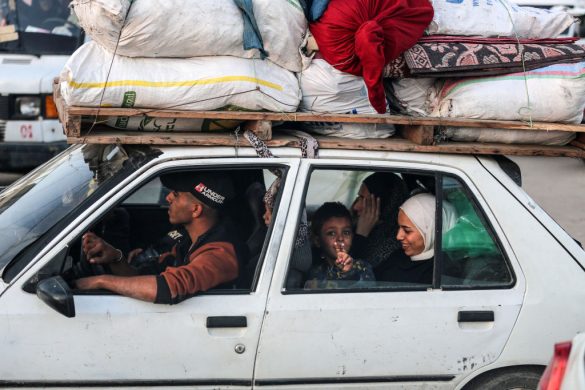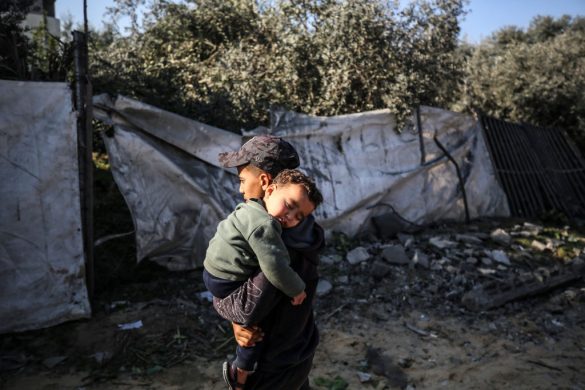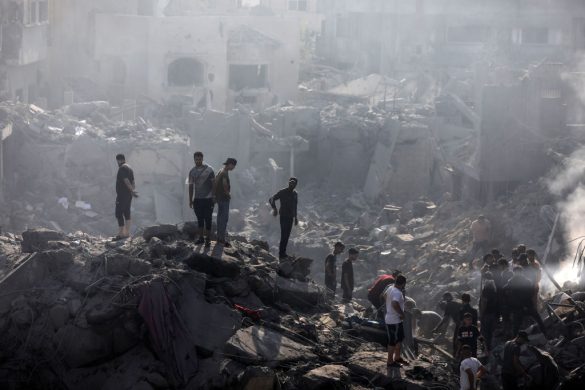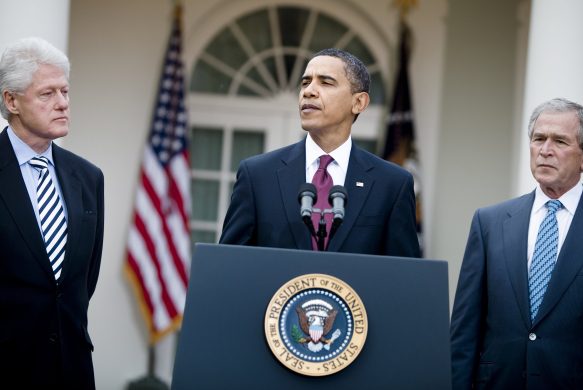Terrorbevægelsen Islamisk Stat (IS) har ifølge inernationale medier smadret dele af et kristent kloster i Irak, der blev opført i det 4. århundrede efter Kristus for ca. 1600 år siden. Der er lagt fotos ud på internettet, som viser eksplosioner ved klosteret, skriver den britiske avis The Independent.
“Nyheden gør os dybt bedrøvede. Igen rammer IS os i hjertet med terror og barbari. Ikke alene foragter IS vores religiøse overbevisninger, men også vores litteratur og kunst, som virkelig gav så meget til verden”, siger Diana Yaqco, talsperson for en assyrisk rettighedsgruppe, til avisen.
IS tiltvang sig kontrol over det historiske bygningsværk kort tid efter, at bevægelsen i 2014 indledte sin offensiv i det nordlige Irak. Klosteret indeholdt bl.a. et enestående bibliotek.
The Independent skriver:
Reports in June last year surfaced suggesting fighters had removed crosses from the building and expelled monks, but the building did not appear to have been damaged any further.
It is not known exactly when the recent attacks were carried out. Images purporting to show explosives being detonated around parts of the building were published on Thursday and disseminated by Isis-affiliated accounts. Another part of the monastery is shown surrounded by plumes of smoke.
The historic monastery survived the Nadr Shah attacks between 1743 and 1790 and reportedly holds one of the most valuable Syriac libraries in existence – se http://www.aina.org/aol/syriac.htm#Bihnam
The destruction comes after Isis’s media arm published pictures of fighters defacing and vandalising a Christian church and the religious statues within it in Iraq on Tuesday. They were also seen removing crosses and replacing them with Isis flags, in an assault it justified by condemning religious artefacts as idolatrous.
Diana Yaqco, a spokesperson for the Assyrian rights group A Demand for Action, said the monastery was built upon the tomb of Saint Benham and his sister who were converted to Christianity.
UNESCO har plan for at gøre noget
Meanwhile, UNESCO Director-General Irina Bokova and French President François Hollande Wednesday sent a strong message of solidarity to the people of Iraq and Syria, and reiterated the urgent need to safeguard cultural heritage of both countries.
The President and the Director-General unequivocally condemned as war crimes the deliberate destruction of several cultural heritage sites in Iraq over recent weeks and months by the extremists from IS.
They include the Mosul Museum, the World Heritage site of Hatra, Nimrud and Khorsabad. They stressed their determination to work together against the illicit traffic of cultural goods from this “cradle of civilization”.
“It is because IS wants to destroy the people, that they are destroying culture,” the Director-General said, adding:
“It is part of a strategy of ‘cultural cleansing’ under which minorities are being persecuted and their heritage destroyed along with everything that embodies diversity and free thinking.
President Hollande commended UNESCO’s efforts to defend cultural heritage, and promised France’s unswerving support. “We stand together” the President said. “We are all concerned when works that are the heritage of humanity are destroyed.”
Vil sætte ind mod den ulovlige kunsthandel
Since the start of the conflicts in Syria and then in Iraq, UNESCO has rallied the international community to protect of cultural heritage from Iraq and Syria and stop the pillage (plyndringer) and illicit traffic of cultural goods from both countries.
To this end, the Organization is working with experts from Iraq, Syria and many other countries, along with other partners including Interpol, the World Customs Organization, museums, leading auction houses and national governments in surrounding countries, to block black market trade in artefacts and train specialists in to, where possible, bolster protection for cultural sites.
In Beirut, the Organization established a heritage observatory, which closely monitors the situation, and provides counsel and training for museum and security staff.
These efforts led to the adoption by the UN Security Council on 12 February, 2015, of resolution 2199, which explicitly recognizes the link between illicit traffic and security, outlaws all trade un cultural goods from Iraq and Syria and requests that UNESCO coordinate efforts in this domain with Interpol.
Building on this progress, UNESCO will bring together several partner agencies and leading cultural non-governmental organizations on 1 April to further discuss the situation and lay the groundwork for a broad coalition for the protection of heritage.
On 18 May, the States Parties to the Convention against Illicit Traffic will meet at UNESCO Headquarters, and on 28 May the Organization is preparing a meeting with the heads of the world’s leading museums on the issue.














